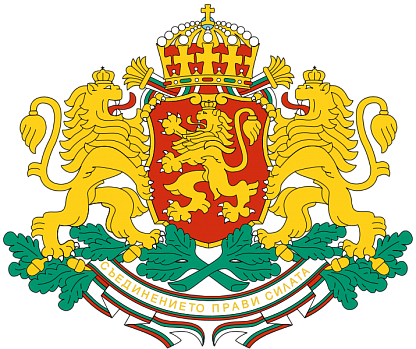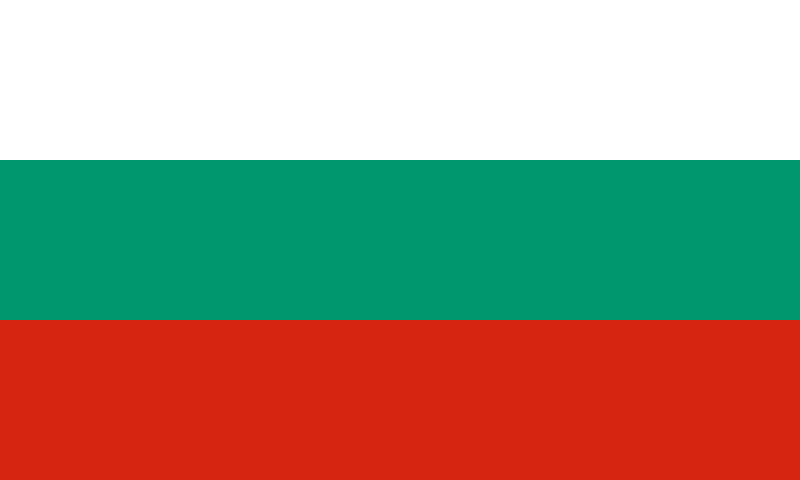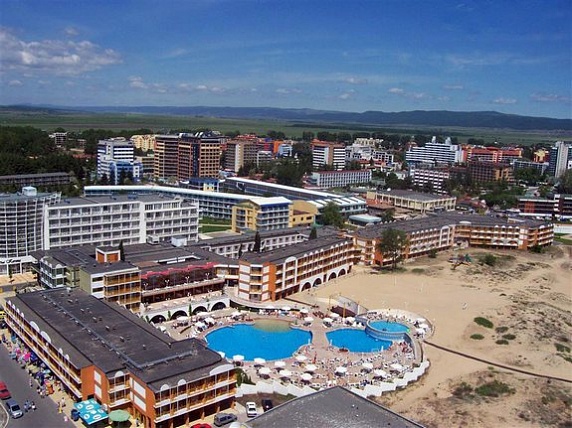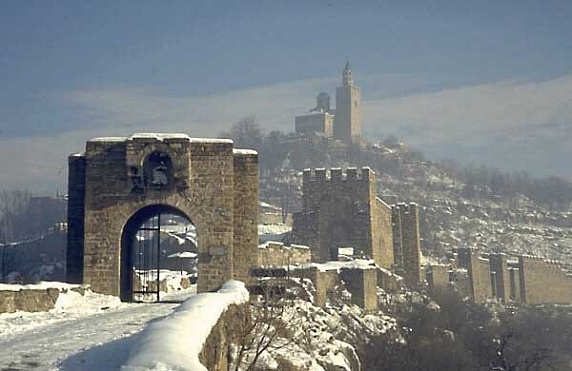 the Republic of Bulgaria
the Republic of Bulgaria
Foreign Minister Sergey Lavrov’s interview with the Bulgarian journal International Relations, published on May 30, 2019
Question: Today, like 140 years ago, Bulgaria preserves a traditionally strong attachment and gratitude to Russia for its role in restoring the Bulgarian statehood. And what is Russia’s attitude to Bulgaria?
Sergey Lavrov: Ties between Russia and Bulgaria go back many centuries. Their special nature is due to their spiritual and cultural affinity. We equally remember and revere such outstanding personalities as the Saint Brothers Equal to the Apostles Cyril and Methodius, Metropolitan of Moscow Cyprian, and other prominent figures of the Slavic enlightenment. The liberation of Bulgaria from the Ottoman yoke was a truly pivotal event in our common chronicle. More than 20,000 Russian officers and men were killed and over 50,000 wounded in the fight for the freedom of the fraternal Slavic nation and for the triumph of the ideals of truth and justice. It was then that the firm foundation of Russian-Bulgarian friendship was laid.
Russia always stood by the Bulgarian people during the key and fateful times in history. Suffice it to recall the activities of the Provisional Russian Administration (1877-1879), which the prominent Bulgarian politician Mikhail Madzharov described as a “generous teacher, who trained the entire national administrative, judicial and financial personnel within less than two years.” During the Paris Peace Conference in 1946, Moscow remained a consistent defender of Sofia.
To be sure, there have been both ups and downs in our bilateral relations. But each time, we successfully overcame temporary difficulties and returned to the path of mutually respectful dialogue. And it could not be otherwise, because the feelings of sympathy shared by Russians and Bulgarians were invariably stronger than any time-serving political calculations.
This year we will mark a significant date: the 140th anniversary of the establishment of diplomatic relations. The foreign ministries of Russia and Bulgaria have prepared a packed programme of events. I am confident that its consistent implementation will facilitate the further strengthening of trust and mutual understanding between our nations.
Question: What do you think about the current state of Russian-Bulgarian relations? What are the prospects for bilateral cooperation in such key areas as the economy, the energy sector and tourism?
Sergey Lavrov: I am satisfied to note that, despite the complicated situation in Europe, Russian-Bulgarian relations are developing dynamically. Political dialogue, primarily at the top level, has intensified as of late. In May 2018, President of Bulgaria Rumen Radev and Prime Minister Boyko Borisov paid working visits to Russia. In October 2018, the two countries’ prime ministers met on the sidelines of the Asia-Europe Meeting in Brussels. In March 2019, Russian Prime Minister Dmitry Medvedev paid an official visit to Bulgaria.
We hope that the positive dynamics of political contacts will help expand practical cooperation, mostly in energy, trade and the economy, all the more so as such cooperation has an enormous potential. The planned Turk Stream gas pipeline opens up broad opportunities for our joint efforts. After it is extended to Bulgaria, the pipeline will enhance your country’s energy security. Considering the unfortunate experience of the South Stream project, it is necessary to obtain solid guarantees from the European Commission that an arbitrary decision by Brussels will not undermine the current plans.
Good prospects for broader cooperation are linked with Sofia’s decision to resume construction of the Belene Nuclear Power Plant. Russia has all the required technology and extensive experience for successfully reviving this project. Today, the Rosatom State Nuclear Energy Corporation is studying possible forms of involvement in building the nuclear power plant. I would also like to note that, in 2017-2018, Rosatom already made it possible to extend the service life of the fifth and sixth reactors of the Kozloduy Nuclear Power Plant, which is currently the only operating NPP in the country, for a period of 30 years.
In 2017, bilateral trade soared by 24 per cent; unfortunately, it increased by just 0.6 per cent last year. Members of the Intergovernmental Commission for Economic, Science and Technological Cooperation discuss prospects for expanding and diversifying Russian-Bulgarian trade. Today, it has become possible to ensure the regular nature of its work. On October 25, 2018, Moscow hosted the 16th meeting of the Commission, and the next meeting is scheduled to be held in September 2019 in Bulgaria. We believe that cooperation between Russian and Bulgarian specialists will make it possible to considerably strengthen trade and economic ties.
In 2018, over 500,000 Russian citizens visited Bulgarian resorts. On March 5, 2019, Sofia hosted the Russian-Bulgarian business forum on tourism, with the participants focusing on expanding tourist exchanges still further.
This year, over 30 Bulgarian cities hosted the Immortal Regiment event. I would like to use this opportunity to sincerely thank our Bulgarian friends for their contribution to preserving historical memory.
Question: How important is regional cooperation in the modern globalised world?
Sergey Lavrov: In the current situation in world affairs, regional cooperation – largely because it is not political in nature – makes a significant contribution to promoting a positive interstate agenda and to strengthening trust and mutual understanding between peoples.
The Black Sea region is an emphatic confirmation of this. Back in 1992, Russia and Turkey put forward an initiative to establish a venue for international interaction on a broad range of issues in the area of the Black Sea. They were joined by Bulgaria. These efforts were crowned with the creation of a versatile mechanism, the Organisation of the Black Sea Economic Cooperation (BSEC).
In this context, the practice shows that it is necessary to meet a number of conditions, such as openness, inclusiveness, determination to achieve harmony and interconnectivity, to ensure the successful functioning of regional formats.
Promoting the “integration of integrations” concept is due to boost the practical spin-off from regional cooperation. To achieve this, President of Russia Vladimir Putin has put forward an initiative to establish a Greater Eurasian Partnership implying connectivity of various integration processes unfolding both in Europe and Asia. I am confident that more intense cooperation within the BSEC would contribute to implementing this large-scale initiative and eventually to ensuring harmonious and sustainable development throughout the Eurasian space.
Question: Can Bulgaria become a vehicle of peace and cooperation in the Balkans and the Black Sea region?
Sergey Lavrov: What the Black Sea region particularly needs today is a relaxation of tension. This problem can only be solved by collective efforts and in rejecting the “zero sum game” as well as stereotypes and patterns imposed by extra-regional players.
Economy could become an important unifying factor. We can help improve the general situation in the area of the Black Sea by establishing mutually beneficial practical cooperation, enhancing interconnectivity in information, communications, transport, trade, culture, tourism and other spheres, and promoting contacts between people. I am confident that Bulgaria could make its contribution to this effort, including as part of its BSEC chairmanship.
Question: How do you assess Bulgaria’s BSEC chairmanship?
Sergey Lavrov: We like the Bulgarian approach to performing the chairmanship functions, an approach aimed at ensuring a balance of interests between all member-countries, promoting a non-confrontational agenda, and finding compromises. We hope that this will help achieve important results at the BSEC Council of Ministers of Foreign Affairs scheduled for June 28 in Sofia.
We are ready to cooperate closely with our Bulgarian partners on the declared priorities, including in the field of transport, culture and the environment. We hope that we will manage to achieve progress in accepting the fundamental Russian-Turkish documents designed to simplify trade and introduce the “one stop-shop” technology. It is also our desire that we will overcome the ungrounded and politicised objections on the part of a group of countries to signing a BSEC-EAEU memorandum of understanding.
The launching of technical assistance projects in the tourist and cultural spheres offers good opportunities for joint efforts. We are ready to finance them jointly with our Bulgarian colleagues, including with reliance on Russia’s 2016 voluntary contribution to the BSEC and the Black Sea Trade and Development Bank to the tune of $1 million. It goes without saying that we are always open to counterproposals.
Question: What is your vision of this Organisation’s future?
Sergey Lavrov: There are different states in the Black Sea area which at the same time are closely linked and interconnected historically and economically. Old trade routes as well as transport and energy corridors crisscross the region and new ones are being created. The region has every chance to become a source of global economic growth and a base for logistic chains in the Eurasian space. Thus, there is a considerable potential for economic cooperation. The main thing is to use it correctly.
Under these circumstances, the role of the BSEC can hardly be overestimated. It has a comprehensive mandate ranging from the macroeconomic level to individual sectors, including related fields of culture, healthcare, emergency response, and the fight against organised crime. The BSEC has evolved an entire spectrum of supporting bodies, including a bank, a parliamentary assembly, and a business council. Its ties with the business community are intensifying.
During the last few years – based on Russia’s contribution – the BSEC has developed a range of much needed practical tools and launched a number of applied projects designed to convert interstate agreements reached within the BSEC to practical deeds. I hope that other countries will follow in Russia’s footsteps and thus help to improve the Organisation’s financial status.
Question: How are Russia's relations with the European Union and NATO developing? Do you see any possibility of lifting the sanctions policy and returning to a constructive dialogue in the foreseeable future?
Sergey Lavrov: Russian-EU relations are going through hard times. Furthermore, Brussels seems to link the prospects for their normalisation with the implementation of the Minsk Package. Such an artificial pretext raises eyebrows. It is well known that the implementation of this international document approved by Resolution 2202 of the UN Security Council is being vigorously sabotaged by Kiev.
Unfortunately, the prosperity and stability of the pan-European home today depend on a small but extremely aggressive group of Russophobes inside the EU, whose actions, in fact, are directed from Washington. The anti-Russia propaganda campaign and attempts to demonise Russia and present our country as the main threat to Europe’s security continue. Unilateral sanctions are regularly extended, resulting in billion-dollar losses to European business.
However, there are some positive shifts. Mutual trade is on the rise for a second year running, reaching $294.2 billion at the end of 2018, up 19.3 per cent. The political dialogue has somewhat recovered as well. Russia-EU interaction continues on a number of industry issues. Contacts are being promoted in science, technology and culture. All this confirms that there are no objective reasons for further degradation of relations. Russia and the EU are close neighbours. We have much in common in economic, historical, cultural and civilisational terms.
As for sanctions, the first step toward lifting them should be made by those who sent the sanction spiral unwinding – that is, the European Union. Then Russia will be able to cancel its countermeasures. The ball is in our EU colleagues’ court.
We hope that common sense will eventually prevail and Russian-EU relations will return to normal, based on respect and consideration for each other’s interests. Moreover, by and large, the challenges facing both Russia and the EU are the same – from ensuring sustainable economic growth to effectively dealing with numerous security issues. I am confident that they can be resolved only by combining the potentials.
Today, relations between Russia and the North Atlantic Alliance have entered a phase of a protracted crisis. NATO is apparently unprepared to jointly build the equal and indivisible Euro-Atlantic security architecture. Instead, it has adopted a policy of containing our country, moving the dividing lines eastward. Its continuous expansion, the building up of its potential near the Russian borders, the deployment of US missile defence system – all of that has led to a crisis of confidence and escalation of military-political tensions in the Euro-Atlantic.
Yet, the possibilities for returning the Russian-NATO dialogue to a constructive vein are far from exhausted. To do this, the partners should strictly abide by their commitments made at the OSCE and Russia-NATO summits to not strengthen their security at the expense of others. For our part, we are always open to working together to counter international terrorism, drug trafficking, cybercrime, and other real, not contrived threats.
Question: What should be done to return confidence to modern international relations?
Sergey Lavrov: I have been asked this repeatedly. To restore confidence in world affairs, it is necessary to abandon the vicious methods of pressure and blackmail and start building interstate communication on the fundamental principles enshrined in the UN Charter – such as the sovereign equality of states, non-interference in their internal affairs, the peaceful settlement of disputes, the non-use of force or the threat of force.
It is necessary to rely on the generally accepted norms of international law, not on some invented order based on rules which our Western partners keep changing depending on the political situation. The global agenda calls for the restoration of the culture of diplomacy; one gets the impression that Washington and a number of other Western capitals have lost much of it.
This is the only way to increase predictability and strengthen mutual understanding between countries.








